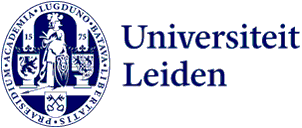ESOF 2022: The future of work
Opportunities and challenges of digitalisation, the platform economy, and flexibilisation of European labour markets.
Work has changed rapidly in recent decades, due to many developments such as new technologies. Many jobs have been replaced by digitalisation, while it has also enabled the upsurge of the platform economy. These structural labour market shifts are associated with enormous economic and societal consequences, which call for new policy solutions.
In the panel discussion ‘The Future of Work’, at the Stadsgehoorzaal during ESOF 2022, Professor Ferry Koster (Erasmus University Rotterdam), Lars van Doorn (Leiden University), Professor Ron Diris (Leiden University), Professor Hanneke Bennaars (University of Amsterdam) and Professor Olaf van Vliet (Leiden University) discussed new findings in their research on the impact of new technologies on European labour.
Leiden Law School @ESOF 2022
Due to the selected cookie settings, we cannot show this video here.
Watch the video on the original website orVan Doorn, Van Vliet and Diris presented their findings on recent research on the labour market. Investment in human capital is a key concept in closing the gap between temporary workers and fixed workers, also called the insider/outsider problem. Skills matter greatly in most countries for getting out of temporary work. So it is crucial for temporary workers to invest in their skills, as they often have a lower level of skills and education. But this is problematic because they also often have fewer opportunities to invest in their own skills. At the same time, employers also seem reluctant to do so because they would be taking the risk of training a temporary worker for someone else.
This situation creates a problem for the individual, temporary worker, but also for the overall functioning of the labour market, especially given the current tightness of it. Shortages are especially high in certain sectors, while other sectors face future shrinkage in light of technological change. In order for people to move from one type of sector to the other, (re)schooling is crucial. Thus, human capital is a key driver in solving or at least reducing the insider-outsider divide.
Another important concept in their research is the transferability of skills and redistribution preferences. High transferable skills increase reemployment opportunities. Individuals with transferable skills stand a relatively smaller risk of (permanently) losing a substantial portion of their income. Therefore, high transferable skills should be associated with lower support for redistribution, lower hostility towards migrants and lower likelihood to vote for radical right parties.
